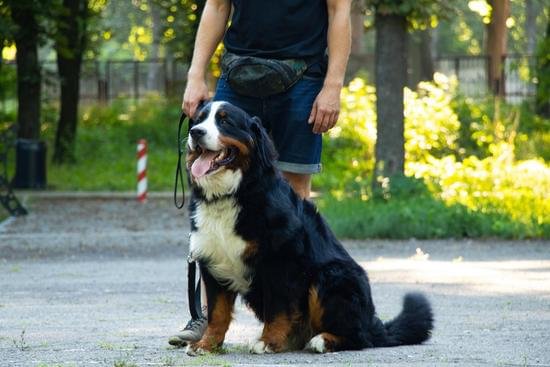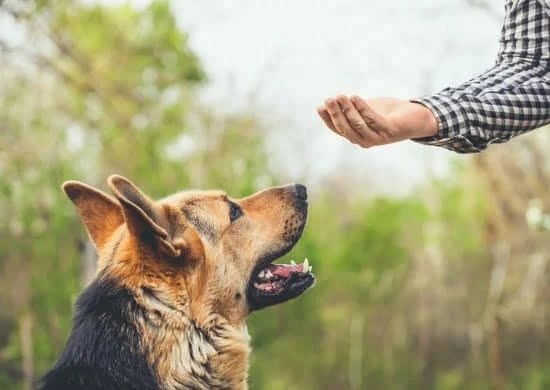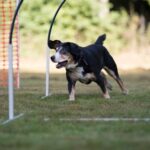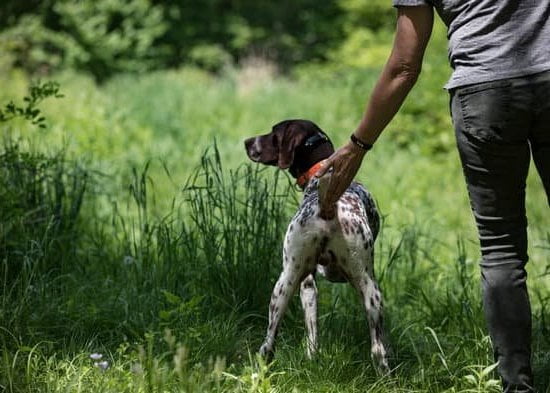Are you wondering how to train old dog to sleep all night? Senior dogs, just like humans, may experience changes in their sleep patterns as they age. Understanding the unique needs of older dogs when it comes to sleep is essential for ensuring their overall well-being and quality of life.
As dogs age, they may experience behavioral changes that can affect their ability to sleep through the night. It’s important for pet owners to recognize these changes and make adjustments to help their senior dogs rest comfortably.
Creating a comfortable sleep environment for your senior dog is crucial in promoting restful sleep. From providing a supportive bed to managing noise and light levels, there are several factors to consider when setting up a space for your aging canine companion.
In addition to environmental factors, regular exercise, feeding and hydration schedules, and bedtime routines all play key roles in promoting healthy sleep habits for older dogs. By understanding the various aspects of an older dog’s sleep needs, pet owners can work towards training them to sleep soundly throughout the night.
Behavioral Changes in Aging Dogs That Affect Their Sleep
As dogs age, they undergo various behavioral changes that can affect their sleep patterns. One common change is a decrease in physical activity and an increase in the need for rest. This shift in energy levels can result in older dogs napping more during the day, which may lead to disrupted sleep at night. Additionally, aging dogs may experience cognitive decline, leading to confusion or anxiety, which can further impact their ability to sleep soundly.
In some cases, medical conditions such as arthritis or other age-related ailments can contribute to discomfort and pain that may interfere with a senior dog’s sleep. It’s important for dog owners to be attuned to their pet’s behavior and look out for signs of agitation or restlessness during the night, as these could indicate an underlying health issue that requires attention from a veterinarian.
Creating a comfortable sleep environment for your aging dog is crucial in addressing behavioral changes that affect their sleep. Providing them with a cozy bed that offers proper support and warmth can help alleviate any physical discomfort they may be experiencing.
Additionally, minimizing noise and disruptions in the sleeping area can contribute to a more peaceful rest for senior dogs. By understanding these behavioral changes and taking proactive measures to address them, dog owners can improve their old dog’s quality of sleep and overall well-being.
| Behavioral Changes | Impact on Sleep |
|---|---|
| Decrease in physical activity | Napping more during the day, disrupted sleep at night |
| Cognitive decline | Confusion or anxiety affecting ability to sleep soundly |
| Medical conditions (e.g. arthritis) | Discomfort and pain interfering with sleep |
Creating a Comfortable Sleep Environment for Your Senior Dog
As our dogs age, their sleep patterns may change, and it’s important to create a comfortable sleep environment for them to ensure they can rest peacefully through the night. There are several factors to consider when designing a cozy and inviting sleep space for your senior dog.
Bedding and Sleeping Area
Older dogs may develop arthritis or other joint issues, so providing a supportive and comfortable bed is crucial. Look for a bed with orthopedic foam or other specialized features designed to alleviate pressure on achy joints. Additionally, ensure that the sleeping area is in a quiet and peaceful part of the house, away from high-traffic areas that could disrupt your dog’s rest.
Temperature and Lighting
Just like humans, older dogs may become more sensitive to temperature extremes. Keep their sleeping area at a comfortable temperature – not too hot or too cold. Consider using cozy blankets during colder months. Additionally, minimize exposure to bright lights or loud noises that could disturb your dog’s sleep.
Aromatherapy
Some pet owners find that incorporating calming scents into their dog’s sleep environment can promote relaxation and better sleep. Lavender, chamomile, or cedarwood are popular choices known for their soothing qualities. Be sure to use pet-safe essential oils and consult with your veterinarian before introducing any new scents into your dog’s environment.
By paying attention to these details and making adjustments as needed, you can create an optimal sleep environment for your aging canine companion, promoting better rest and overall well-being.
The Importance of Regular Exercise for Older Dogs and Its Impact on Sleep
As dogs age, their exercise needs may change, but regular physical activity remains crucial to their overall health, including their sleep patterns. Just like humans, older dogs benefit from regular exercise to maintain muscle tone, joint flexibility, and mental stimulation.
Engaging in physical activities also helps them expend energy, which can lead to better sleep at night. Depending on your dog’s specific health and mobility issues, you may need to adjust the type and duration of exercise, but it should still be a priority in their daily routine.
One way to ensure that your senior dog gets enough exercise is by taking them for daily walks. This not only provides physical activity but also mental stimulation as they sniff around and explore their environment. For dogs with mobility issues, hydrotherapy or gentle swimming can be excellent low-impact options to promote physical fitness without straining their joints.
Engaging in interactive playtime with your older dog is also an effective way to keep them active. Whether it’s a game of fetch or engaging in puzzle toys that encourage mental stimulation, these activities can help tire out your dog in a positive and engaging way. By maintaining a consistent exercise routine tailored to your senior dog’s needs, you can positively impact their sleep quality and overall well-being.
Feeding and Hydration Schedule for Better Sleep
As dogs age, their dietary and hydration needs may change, which can impact their sleep patterns. It’s important to create a feeding and hydration schedule that promotes better sleep for your senior dog. Older dogs may have more sensitive stomachs or bladder control issues, so it’s essential to adjust their feeding and drinking habits accordingly.
When determining the feeding schedule for your older dog, consider offering smaller, more frequent meals throughout the day. This can help prevent digestive discomfort and reduce the likelihood of your dog waking up in the middle of the night due to hunger. Additionally, be mindful of the types of food you are feeding your senior dog, as certain ingredients or high-fat diets can lead to indigestion or discomfort during sleep.
In terms of hydration, it’s crucial to monitor your older dog’s water intake, especially before bedtime. While it’s important to keep your senior dog hydrated, reducing water consumption closer to bedtime can minimize nighttime bathroom breaks. However, ensure that they have access to water throughout the day and evening to prevent dehydration. By managing your older dog’s feeding and hydration schedule carefully, you can help promote better sleep quality for them as they age.
Implementing a Bedtime Routine to Signal It’s Time for Sleep
As dogs age, their sleep patterns can change, and they may require some help to establish a consistent bedtime routine. Implementing a bedtime routine can signal to your senior dog that it’s time for sleep and help them settle in for the night. This can be especially helpful if your older dog is experiencing difficulty staying asleep throughout the night.
Consistency Is Key
Establishing a consistent bedtime routine for your old dog is important. This routine can include activities such as going for a short walk, having a final potty break, and then settling in for the night. The key is to keep these activities consistent and predictable to create a sense of security and comfort for your senior dog.
Creating a Calm Environment
In addition to establishing a consistent routine, creating a calm and soothing environment in the evening can also help signal to your old dog that it’s time for sleep. Turning down the lights, playing calming music or white noise, and providing a comfortable bed can all contribute to setting the stage for a restful night’s sleep.
Avoiding Stimulating Activities Before Bed
It’s important to avoid engaging in stimulating activities with your senior dog right before bedtime. This includes rough play or intense exercise, as these activities can invigorate your dog rather than prepare them for sleep. Instead, opt for gentle interactions and quiet bonding time in the evenings to help ease your old dog into their bedtime routine.
By implementing a bedtime routine that signals it’s time for sleep and creating a calm environment, you can help train your old dog to sleep through the night more consistently, promoting better restorative sleep.
Addressing Any Underlying Health Issues That May Be Disrupting Your Dog’s Sleep
As your dog gets older, they may experience various health issues that can disrupt their sleep. Addressing these underlying health issues is crucial in helping your old dog to sleep all night. Here are some common health issues to consider and how to address them:
1. Arthritis: Many older dogs suffer from arthritis, which can make it difficult for them to find a comfortable sleeping position. Consider providing a supportive orthopedic bed for your senior dog to alleviate joint pain and promote better sleep.
2. Cognitive Dysfunction: Just like humans, older dogs can experience cognitive decline, leading to confusion and restlessness at night. Creating a predictable bedtime routine and providing mental stimulation during the day can help reduce anxiety and improve sleep quality for dogs with cognitive dysfunction.
3. Urinary Incontinence: Incontinence issues can disrupt your dog’s sleep as they may need to go outside multiple times during the night. Talk to your veterinarian about possible treatments or medications to manage urinary incontinence and minimize nighttime disruptions for both you and your dog.
It’s important to consult with your veterinarian if you notice any changes in your old dog’s behavior or sleep patterns. They can help identify and address any underlying health issues that may be affecting your dog’s ability to sleep through the night.
Remember, patience is key when addressing these health issues, as it may take time for your old dog to adjust and feel more comfortable at night. With proper care and attention, you can help improve your senior dog’s sleep quality and overall well-being.
The Role of Positive Reinforcement and Patience in Training an Old Dog to Sleep Through the Night
As your dog ages, you may notice changes in their sleep patterns. Older dogs often struggle to sleep through the night due to a variety of reasons such as discomfort, anxiety, or health issues. However, with the right approach and patience, you can train your senior dog to get a good night’s rest. Here are some tips on the role of positive reinforcement and patience in training an old dog to sleep through the night:
- Be patient and understanding: Understand that it may take some time for your older dog to adjust to new sleep habits. Be patient and provide them with reassurance and comfort during this transition period.
- Use positive reinforcement: When your senior dog exhibits good sleeping behavior, such as sleeping through the night without waking up or staying calm in their designated sleeping area, be sure to reward them with praise and treats. Positive reinforcement can help reinforce desired behavior.
- Establish a consistent routine: Consistency is key when training an older dog to sleep through the night. Set a specific bedtime and wake-up time for your dog, and stick to it every day. This will help regulate their internal clock and promote better sleep.
By implementing these strategies and incorporating positive reinforcement techniques, you can effectively train your older dog to sleep through the night. Remember that each dog is unique, so be patient and adjust your approach as needed. If you encounter challenges along the way, consult with a professional trainer or veterinarian for additional guidance.
When to Consult a Professional for Help With Your Dog’s Sleep Issues
In conclusion, training an old dog to sleep all night requires patience and understanding of their changing needs as they age. Understanding the sleep patterns of older dogs, addressing any behavioral changes, creating a comfortable sleep environment, regular exercise, and a consistent feeding and hydration schedule are essential factors in helping your senior dog get a good night’s rest.
Additionally, implementing a bedtime routine and addressing any underlying health issues can also contribute to better sleep for your aging furry friend.
However, despite your best efforts, there may be instances where consulting a professional is necessary to address your dog’s sleep issues. Persistent disruptions in your dog’s sleep pattern despite making adjustments to their environment and routine may indicate an underlying health issue that needs veterinary attention.
Additionally, if your efforts in training your old dog to sleep through the night are not showing any progress or if there are behavioral concerns that require expert guidance, seeking professional help from a veterinarian or a certified animal behaviorist is crucial for the well-being of your senior dog.
Frequently Asked Questions
How Do I Get My Senior Dog to Sleep All Night?
Getting a senior dog to sleep all night may require some adjustments in their routine and environment. Providing regular exercise during the day can help them feel more tired at night.
Creating a comfortable sleeping area with familiar bedding and perhaps a favorite toy can also promote better sleep. Additionally, sticking to a consistent bedtime and avoiding late-night meals or treats can help establish a healthy sleep schedule for your senior dog.
Why Does My Old Dog Keep Waking Up at Night?
There are several reasons why an old dog may keep waking up at night, including discomfort from arthritis or other health issues, anxiety, needing to go outside to relieve themselves, or simply feeling unsettled in their environment. It’s important to address any potential health issues with your veterinarian and make sure your dog is comfortable at bedtime.
Establishing a calming bedtime routine and creating a peaceful sleeping environment can also help reduce nighttime waking.
How Do You Train an Older Dog to Sleep in His Own Bed?
Training an older dog to sleep in their own bed requires patience and consistency. Start by placing their bed in a designated area of your home and encourage them to use it by using positive reinforcement, such as praise and treats when they lay down in their bed.
Gradually increase the amount of time they spend in their bed until they are comfortable sleeping there through the night. Avoid giving in to any whining or attention-seeking behavior during the training process, as this may reinforce unwanted behavior.

Welcome to the blog! I am a professional dog trainer and have been working with dogs for many years. In this blog, I will be discussing various topics related to dog training, including tips, tricks, and advice. I hope you find this information helpful and informative. Thanks for reading!





